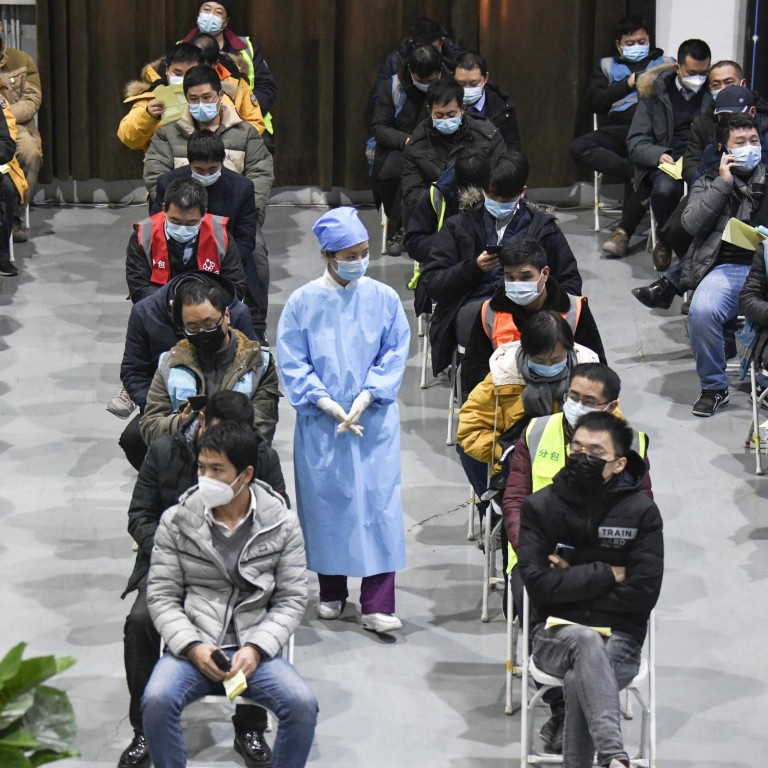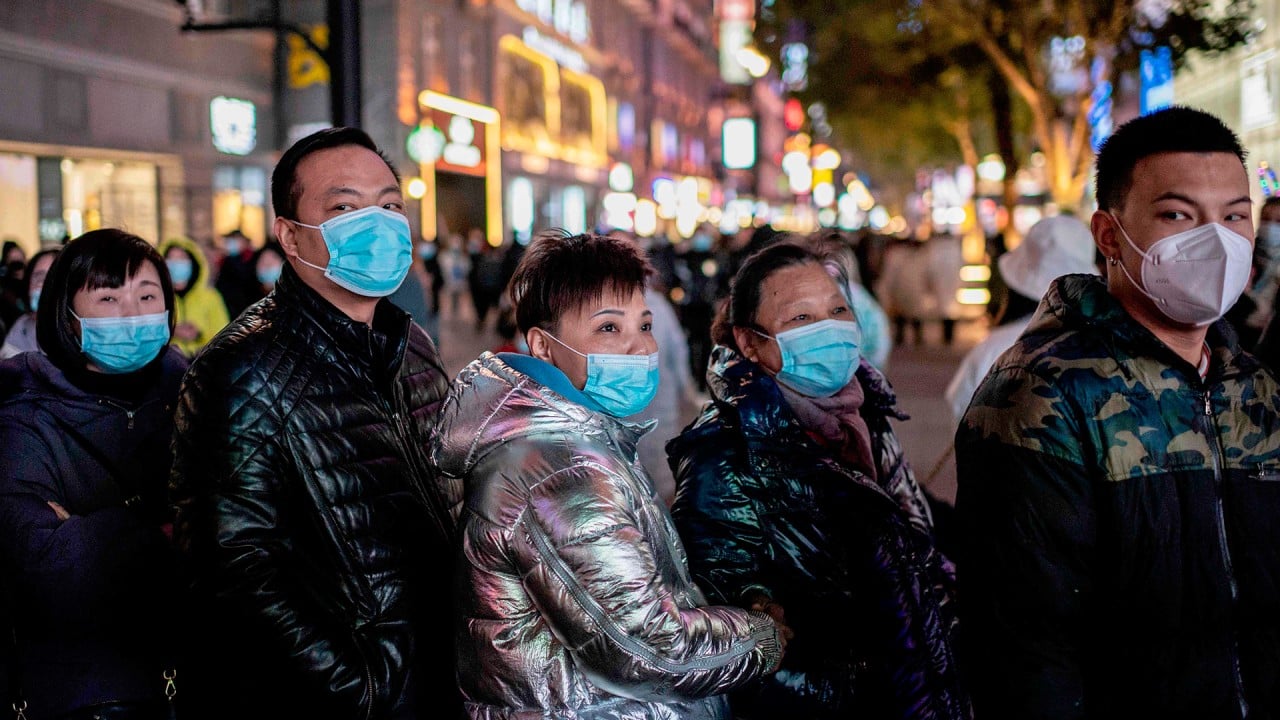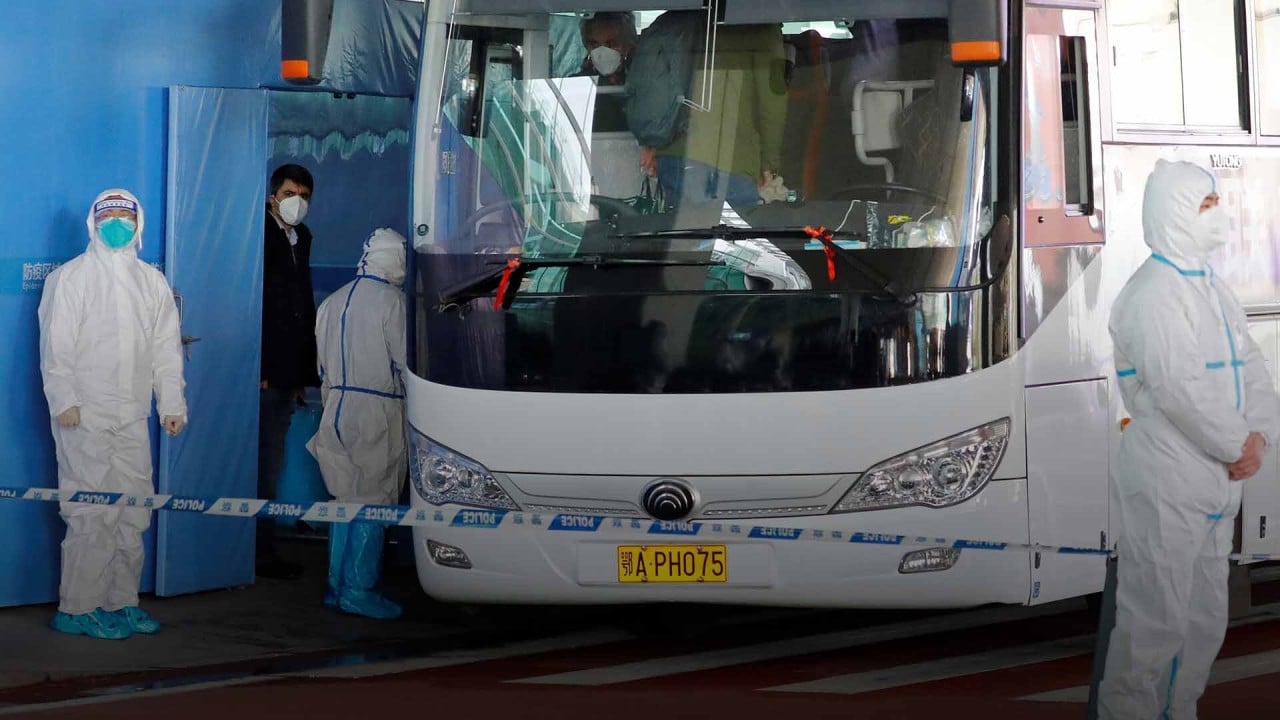
15 million people given Covid-19 vaccines in China as Spring Festival nears
- Dozens of new coronavirus cases reported in winter weather in the county’s north
- Transport ministry forecasts 40 per cent drop in holiday traffic as public urged to stay home for Lunar New Year
Plans are also afoot to inoculate children and the elderly across the county to prevent outbreaks, according to Wang Bin, from the commission’s disease prevention and control bureau.
Wang said immigration staff, international and domestic transport workers, essential workers and public service providers had priority in the campaign, which aims to have 50 million people immunised before the holiday.

01:59
China reports 153 new coronavirus cases, biggest daily Covid-19 jump in months
The country reported 88 new locally transmitted Covid-19 cases on Wednesday, 46 of which from the northeastern province of Jilin bordering North Korea and Russia.
The rest were found in the northernmost province of Heilongjiang, the northern province of Hebei and Beijing, which went into a partial lockdown on Wednesday.
Chinese authorities have urged residents not to make “unnecessary” trips to their hometowns for the week-long holiday, with some local governments calling for travellers to report to their community committee before they leave and to present a negative Covid-19 test result to enter the area.
China’s Lunar New Year travel season is usually the world’s largest annual human migration as people travel home to see their family.
Coronavirus: Chinese local authorities step up efforts to convince migrant workers to stay put over Lunar New Year
Despite calls for people staying put, the Ministry of Transport estimated that around 1.7 billion trips would be made over the holiday period in February, with an average of 40 million passengers per day.
Although the estimates are more than 40 per cent lower than the same time in 2019, the pressure on the national transport system is still “relatively high” because it is double the present passenger flow, according to Wang Xiuchun, the ministry’s deputy head of transport services.
To avoid traffic congestion, authorities would monitor highway networks using big data and other technology, she said.
Beijing has also urged employers to be flexible about this year’s Lunar New Year break.
“In a bid to prevent transmission and to control the pandemic, we encourage companies and enterprises to make flexible arrangements for the holiday and guide employees to spend the vacation in the area where they work,” the State Council said in a notice.

01:47
WHO health experts arrive in Covid-19 epicentre Wuhan to investigate origins of coronavirus
The Chinese Centre for Disease Control and Prevention also repeated warnings about the risk of coronavirus infection from cold-chain food systems and the winter weather.
“Since last year many people exposed to cold-chain items have been infected. We have detected live viruses on cold-chain items, particularly from imported seafood products and outer packaging,” CDC deputy director general Feng Zijian said.
“It proves that these live viruses on a contaminated surface can cause infection and spread the disease.”
Feng also said low winters temperatures could enable the virus to survive longer on surfaces, infecting people who touched them.
Coronavirus in Chinese ice cream raises new alarm over infection via food
However, experts have said further studies should be conducted to find out whether the virus can survive in cold storage for a prolonged period and remain infectious.
Those experts include Dutch virologist Marion Koopmans, who is on the World Health Organization team in China investigating the origins of the coronavirus.
The team arrived a week ago and is meeting Chinese counterparts virtually during a 14-day quarantine in Wuhan. But one member was not allowed into China after retesting positive for Covid-19 IgM antibodies, falling short of Chinese requirements for inbound flights.
Wang from the NHC said China would review its measures to control imported cases to take into account that many countries had gradually begun to vaccinate their population.

